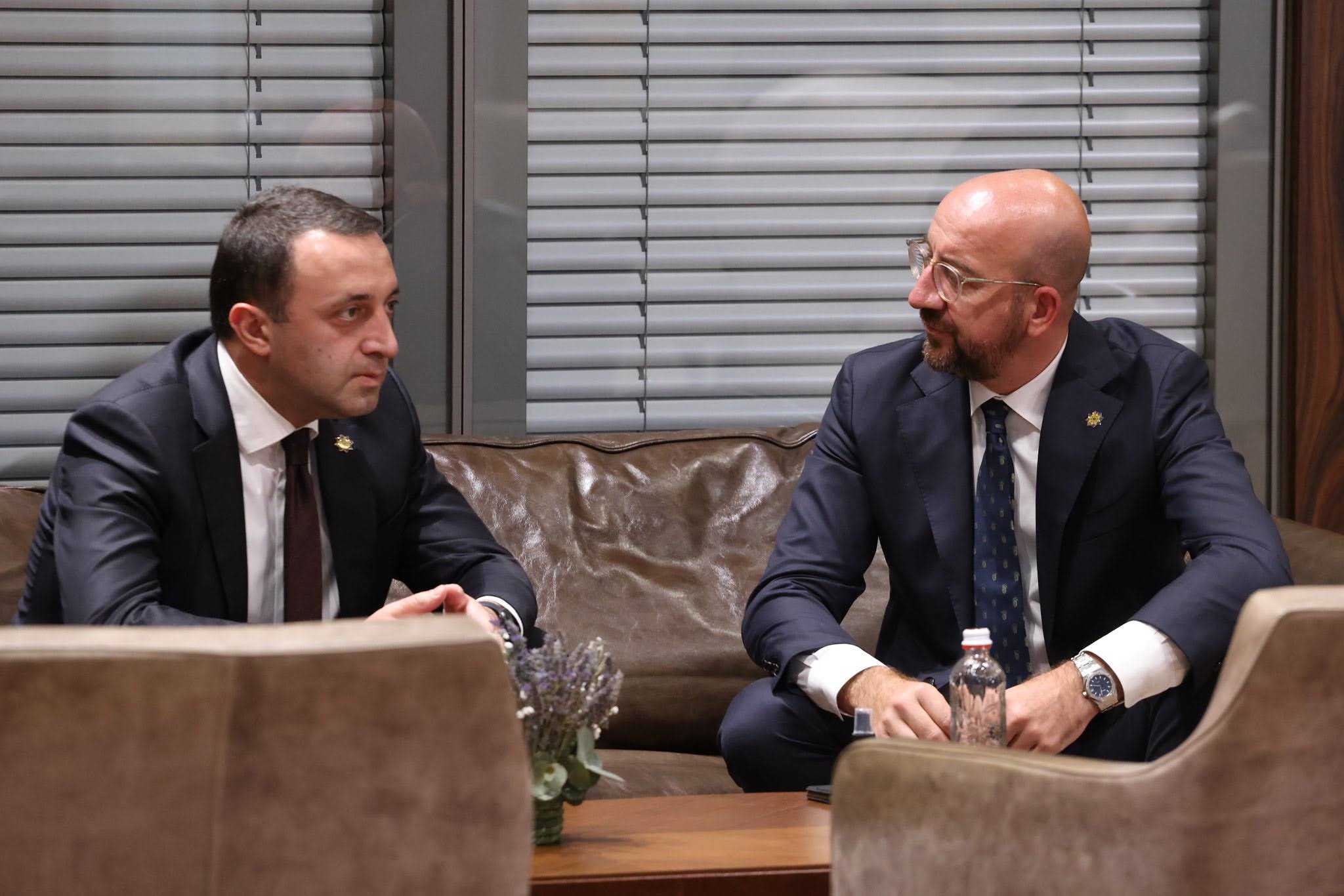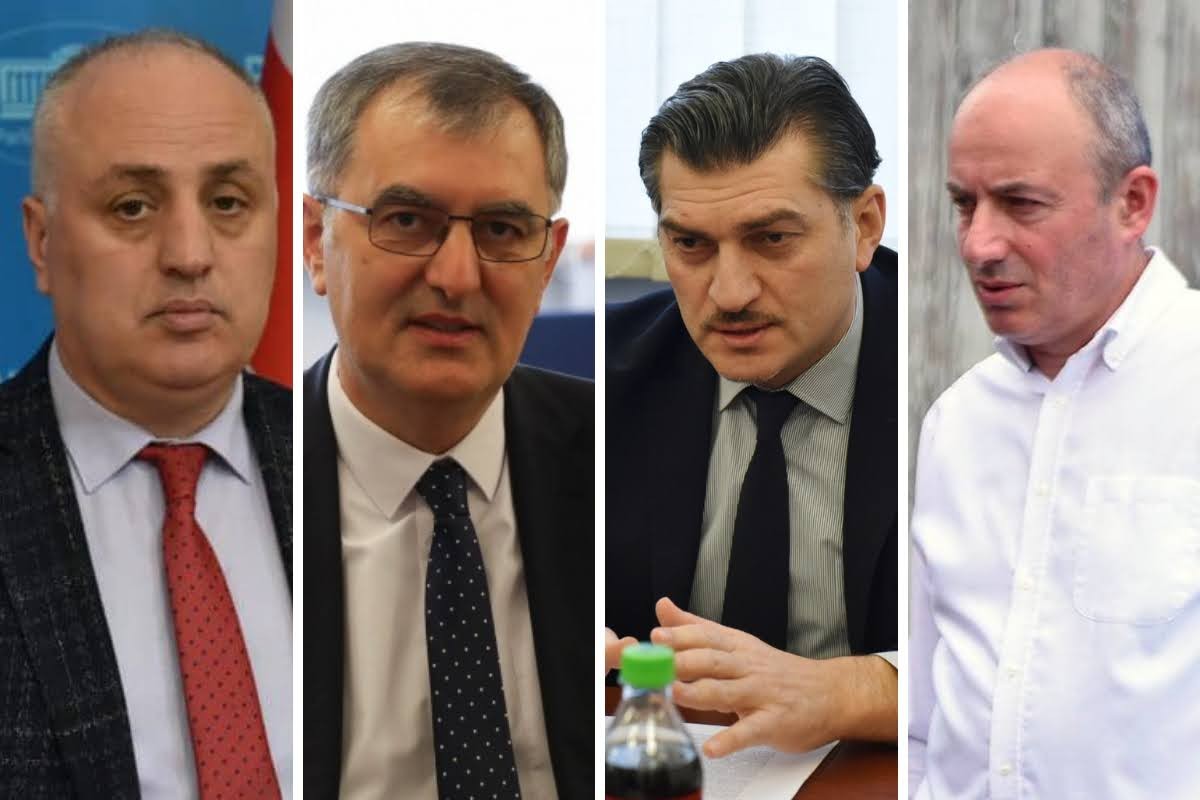
Four Georgian MPs and staunch supporters of Bidzina Ivanishvili have accused the US of attempting to orchestrate a coup in Georgia.
On Thursday, the four MPs, who on paper left the ruling Georgian Dream party this summer to enable them to ‘speak more openly’, levelled a raft of accusations against the US, while once again leaping to the defence of Georgian Dream founder Bidzina Ivanishvili.
In a joint statement, Sozar Subari, Mikheil Kavelashvili, Dimitri Khundadze, and Guram Macharashvili said the US Embassy in Georgia was behind almost every political controversy in the country since at least 2018.
They said the US was coordinating ‘the radical agenda of the radical opposition’ and that their ‘revolutionary scenario’ in Georgia would continue.
‘It is evident […] that the objective of both a coup d’état and the launching of a second front [of war with Russia] remain vitally relevant’, their statement read.
‘Calls for war by high-ranking officials of the Ukrainian government in full coordination with the USA continue.’
While government officials and their supporters have grown increasingly hostile to the US and EU, this is the first instance in which those with close ties to the government have accused the US of seeking a change of power in Georgia.
[Read more on OC Media: Irakli Kobakhidze: The face of Georgia’s turn from the West]
The four MPs hinted that the US was somehow behind Giorgi Gakharia’s tenure as Interior Minister and appointment as Prime Minister, to create problems for Georgian Dream.
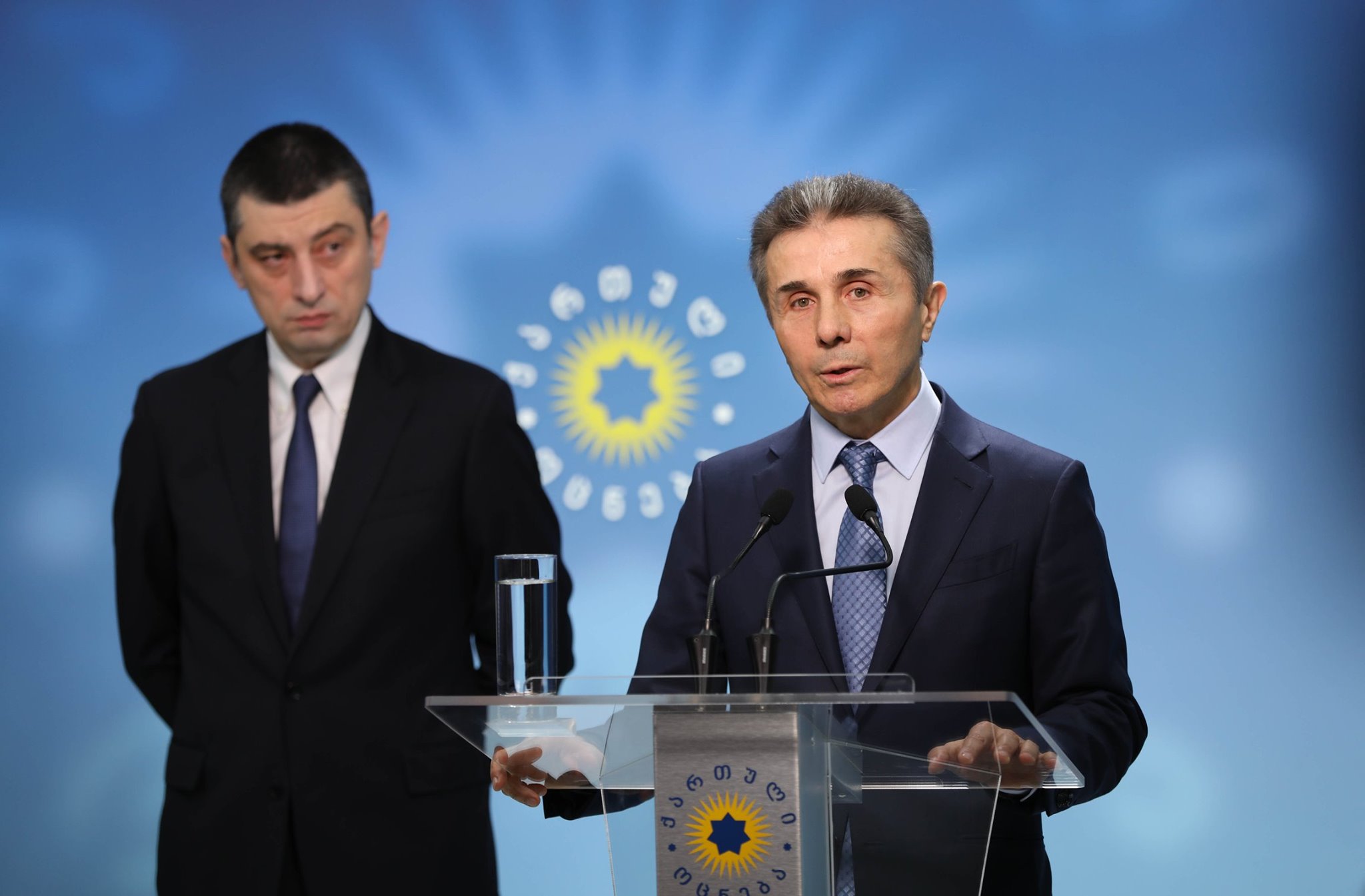
They suggested that controversies under Gakharia’s tenure — including the Bassiani club raid, the clashes in Pankisi, the dispersal of the Gavrilov’s night protests, the handling of 16-year-old Davit Saralidze’s murder, and a period of increased tensions with South Ossetia — were all part of a plot to overthrow the government.
They also said the US planned in advance his resignation as PM, in which Gakharia cited his party’s insistence on arresting the leader of the opposition UNM, in order to discredit the government and cause ‘irreversible revolutionary processes’.
In their statement, the four MPs alleged that the US counted on the domestic repercussions of the EU’s denial of membership candidate status to Georgia in their bid to change power in Georgia.

The MPs accused the EU Ambassador to Georgia Carl Hartzell of seeking to harm Georgian Dream before the 2021 local elections by planning to refuse Georgia a €75 million ($89 million) aid package.
‘Georgian Dream acted promptly here as well, refusing the loan and thwarting the plan of the embassy’.
At that time, Georgian Dream denied they faced a prospect of being denied the aid for unimplemented institutional reforms, arguing instead that the ‘loan’ would be an additional burden.
The MPs also said the US ‘ensured that [President Salome Zurabishvili’s] two children received quick promotions’, in order to turn her against the government.
Zurabishvili’s daughter is the White House correspondent for France 24 while her son is a career French diplomat.
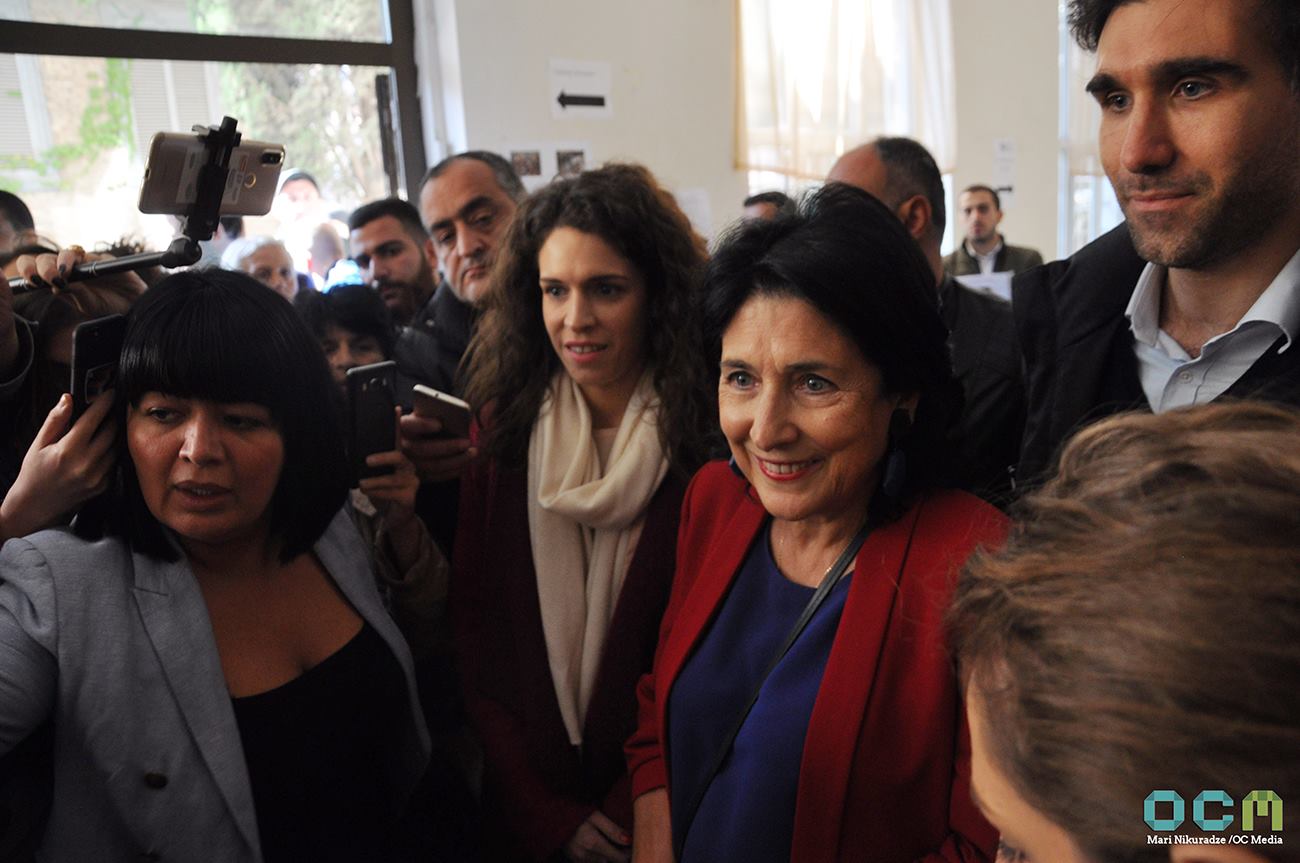
They said the US also supported a ‘chauvinistic’ campaign against Russian tourists in Georgia through the US Embassy’s ‘favourite radical opposition, NGOs’, as well as Public Defender Nino Lomjaria.
[Read more on OC Media: Russian émigrés face chilly reception in Georgia]
They suggested the US was behind the aborted Tbilisi Pride march on 5 July 2021, which descended into chaos after far-right extremists attacked activists and journalists as the police refused to intervene in force.
‘[T]he embassy played an unlosable game — it was easy to calculate that the so-called Pride and the expected incidents would cause serious damage to the “Georgian Dream” before the elections’.

The four MPs also said the US Embassy had ‘forced’ the 19 April Charles Michel agreement on Georgia.
The agreement, signed between the ruling party and several opposition groups, was brokered by EU Council President Charles Michel and was meant to end the political crisis in Georgia. Last July, Georgian Dream abandoned the deal, with party chair Irakli Kobakhidze announcing the party wished to return the country to a ‘constitutional framework’.
Echoing the sentiment, the four MPs said the US Embassy ‘partially removed’ Georgia from the ‘constitutional framework’.
Their statement also accused the US of forcing the ruling party to change the electoral system in favour of the opposition.
After backtracking on a 2019 promise by Bidzina Ivanishvili to get rid of the majoritarian component of the electoral system in Georgia, Georgian Dream agreed the following year to reduce the number of majoritarian MPs from 73 to 50 in the 150-seat parliament.

The four MPs presented no evidence for any of their claims.
Ivanishvili defenders: ‘Ivanishvili needs no defence’
In their 11 August statement, the four MPs repeatedly praised Georgian Dream founder Bidzina Ivanishvili.
Ivanishvili formally left politics in January 2021, after returning from his first retirement in 2018. However, he has been widely accused by the opposition and civil society groups of maintaining de facto control over the government.
The four MPs said they were disappointed with US Ambassador Kelly Degnan’s latest interview because she failed to reject the notion that the former Prime Minister was an ‘oligarch’.
Asked by Formula, Degnan said it was up to the Georgian people to determine whether or not this was the case.
‘A visit to “Formula” proves that the ambassador feels comfortable only in the media she controls’, the four MPs said.
Ambassador Degnan reached out to the Georgian public more proactively after Bidzina Ivanishvili confirmed in a rare public letter that Degnan had met him on 21 March, ‘after the war in Ukraine started’.
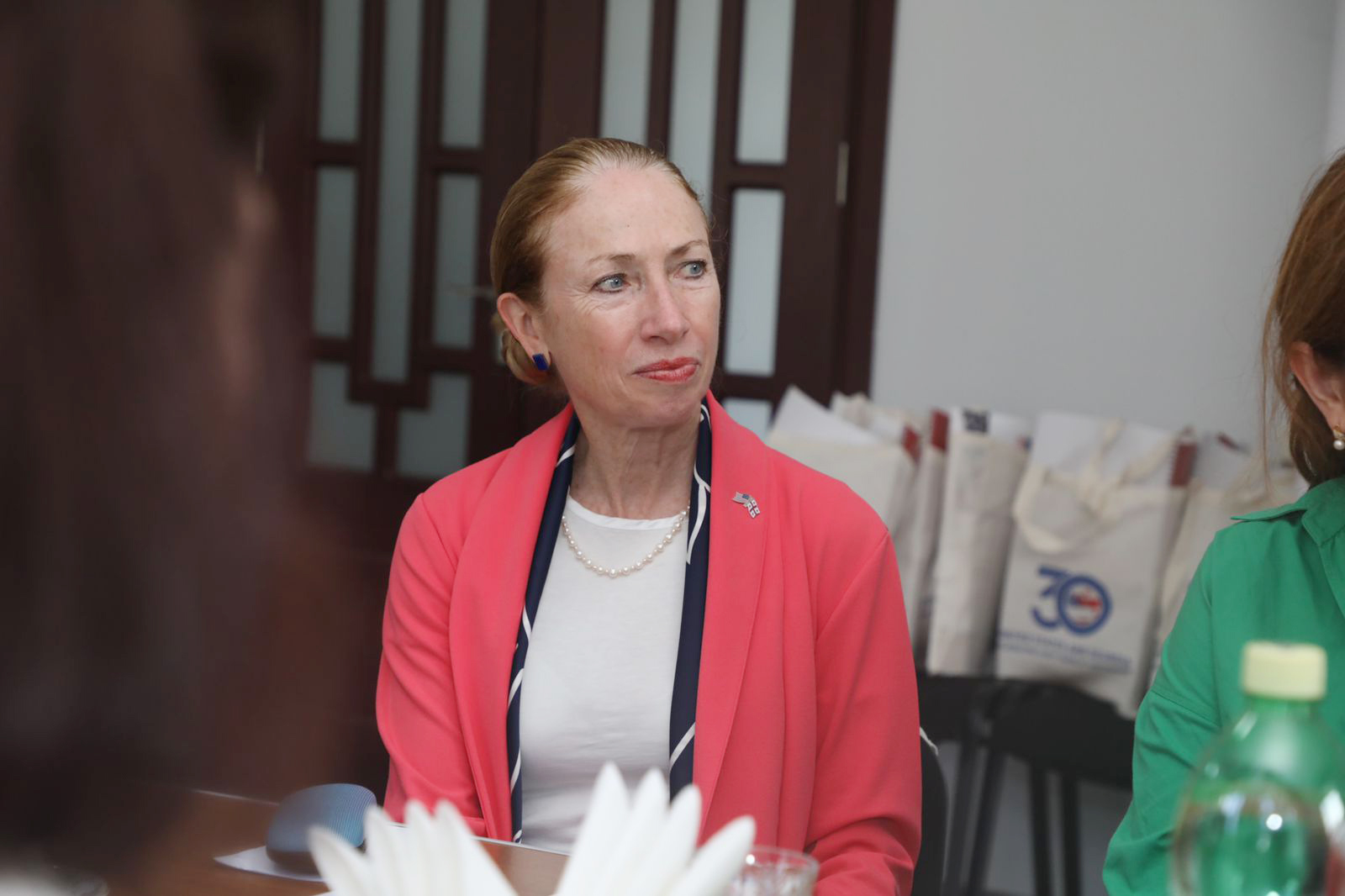
Amidst insinuations from the ruling party and outright allegations by the four MPs that the US was pressuring Ivanishvili to take Georgia to war with Russia, Ivanishvili did not deny the accusation. However, neither did he clarify what he and Degnan discussed during their meeting.
Both before and after his direct address to the public, Ivanishvili has indicated through his lawyers that Swiss bank Credit Suisse allegedly denying him access to his assets was geopolitically driven. The four MPs repeated this claim on 11 August.
The four stated that Ivanishvili, who they insisted was not an oligarch, did not need their or anyone’s defence, even though he deserved it.
‘The [US] embassy is fully aware that Bidzina Ivanishvili does not use his power to manipulate or dominate the government’, the statement read.
Watchdog groups have for years accused Ivanishvili of maintaining a grip on the Georgian authorities through a group of influential judges in Georgia’s judiciary and by appointing former employees to key government positions.
[Read more on OC Media: Anna Dolidze suggests ‘de-Cartuisation’ law for Georgia]






